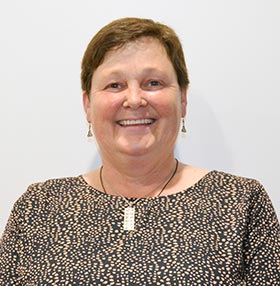 Our lives have changed dramatically. We have lost friends and family members but health staff have continued to rise to the challenges. Health staff were sometimes the only ones with dying patients during the first lockdown. Their professionalism and kindness, despite risks to their own health, were outstanding.
Our lives have changed dramatically. We have lost friends and family members but health staff have continued to rise to the challenges. Health staff were sometimes the only ones with dying patients during the first lockdown. Their professionalism and kindness, despite risks to their own health, were outstanding.
Issues around personal protective equipment (PPE) continue, with some members experiencing distress that they still can’t access PPE in a timely manner. And some providers are not coming to the table to solve the safety issues facing nurses working in quarantine/isolation facilities. Some argue the information on PPE on the Ministry of Health website is not robust enough. Fortunately, the practice of nurses being moved across sites has now stopped.
We in Aotearoa New Zealand have much to be thankful for, compared with many other countries. And the past and current governments deserve praise for their handling of this crisis, albeit with slippage regarding PPE standards, its distribution, border issues and lack of testing at times.
We have achieved a degree of safety and returned to a near normal life, although COVID-19 is not going away any time soon. My hope is that a safe, robust, reliable vaccine will be developed and available to all world citizens, not just to the wealthy and privileged. I implore the Government to ensure our quarantine facilities are safe for all returnees and staff. The International Council of Nurses has estimated 1500 health workers from 44 countries had died from COVID-19 by the end of October. We don’t want any New Zealand health workers to become part of these statistics.
New Zealand remains on alert for outbreaks of COVID-19, with testing used to protect our communities. I appeal to everyone to use the tracking app, even if you are just out and about in your local community.
Our lives have changed dramatically… but health staff have continued to rise to the challenges.
Unfortunately, we have also seen nursing leadership positions across the country disestablished. District health boards (DHBs) have been particularly hard hit, as they struggle to balance the books. Deficits are an all-too-common part of health service difficulties, but getting rid of nursing and other health staff is not going to save money. It’s going to cost more due to lack of resources and treatments, the possibility of more serious assaults on staff, more accidents and longer times in hospital due to missed care. This is a throwback to the 1990s, when health services were managed as businesses. Many great nursing leaders had their roles disestablished, and “savings” made to DHB budgets led to needless suffering, deaths and distress for families and staff across the country.
Health bosses are now planning to amalgamate DHB areas to make savings and apparently improve care for our citizens. Tinkering with services to create larger DHBs won’t necessarily improve services, but may instead cause chaos and disruptions. Whether a more responsive service emerges, only time will tell.
Realising health promises
My hope is that the new Government will manage our health service properly and realise at least some of its election promises. With more adequate health funding, we would experience fewer Third World diseases, and vulnerable populations such as Māori and Pacific Islanders, who die on average 10-15 years younger than Pākehā populations, would improve their life expectancy. We would be unlikely to see women in rural areas giving birth on the sides of roads, due to not making it in time to the larger urban hospital. No matter where you lived, you would have access to robust and timely health services.
Our members are still waiting for pay parity and PHC nurses are still waiting to be paid the same as DHB staff. The DHB multi-employer collective agreement negotiations continue to grind on, with little progress so far. Iwi and Māori health providers continue to pay their nurses and health staff below DHB rates. We need to see these issues resolved with as much urgency as there was in creating “shovel ready” projects and trades funding, following the arrival of COVID-19 on our shores.
Enjoy the Christmas season and the summer holiday. Our relationships with whānau and friends are the most important aspects of our lives, so enjoy them all. For those working over the holiday season, thank you.
Thank you to NZNO staff who work hard to support members and thank you to all voluntary members, including those in governance roles, or in colleges, sections and regional councils. Our aims are the same – to achieve a fairer and just organisation for us all, and ultimately for New Zealand.
I hope 2021 will prove a better year, with those long-sought-after improved pay and conditions finally realised.




